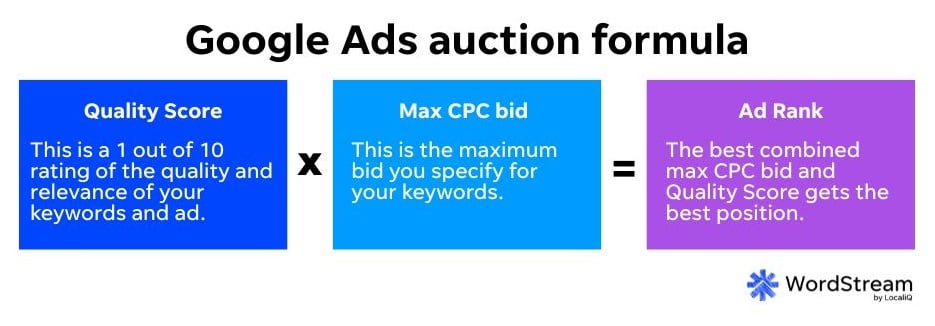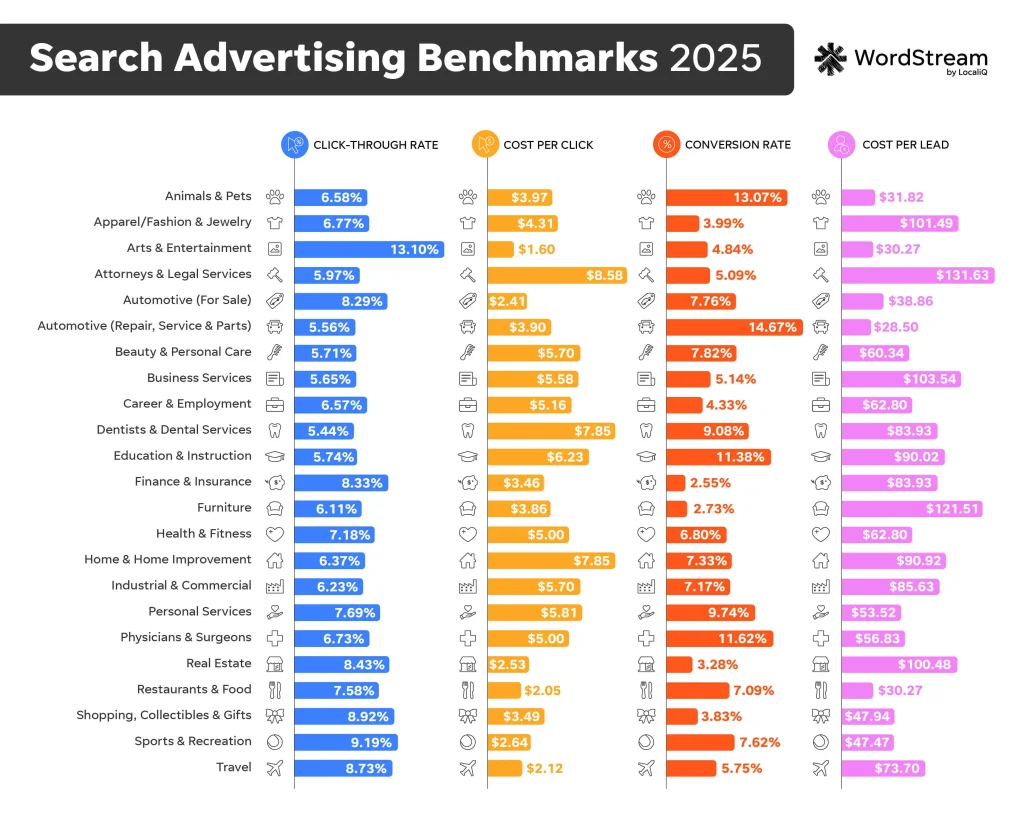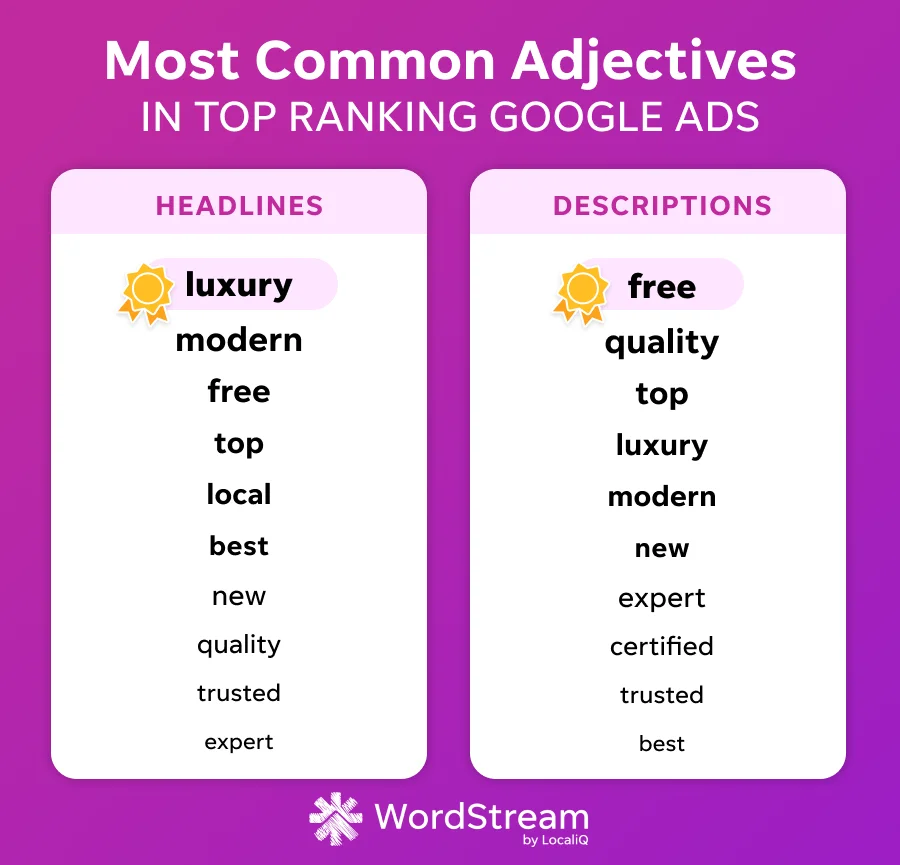The Complete Guide to Quality Score (+Tips to Improve It)
If you’re trying to master PPC advertising on key platforms like Google Ads or Microsoft Ads, you need a solid understanding of Quality Score. That’s because your Quality Scores have enormous influence over the cost and effectiveness of your paid search campaigns.
Just as your credit score can affect whether or not you qualify for a loan and how high your interest rate is, Quality Score affects how your PPC ads perform and how much you pay for each click.
So, how can you find out your current Quality Score? And where does it land in terms of being “good” or “bad” for your PPC performance? Don’t fret! This complete Quality Score guide will walk you through answers to both those questions, plus provide tips to improve your score.
This article has been fully reviewed and updated for accuracy as of November 18, 2025.
Contents
- What is Quality Score?
- How to find your current Quality Score
- What it means if your keywords have no Quality Score
- Why does Quality Score matter?
- What is a good Quality Score to aim for?
- Tips to improve Quality Score in Google and Microsoft Ads
What is Quality Score?
Quality Score is Google’s 1-10 rating of the quality and relevance of your keywords in relation to your ads. Quality Score is part of the Ad Rank formula–Google takes your Quality Score and multiplies it by your maximum bid to determine your ad position.
For advertisers who run ads on both Google Ads and Microsoft Ads, know that Microsoft also assigns Quality Scores to your keywords in the same fashion.

Your Quality Score depends on three factors, including:
- Expected click-through rate (eCTR): Google’s estimation of how likely a user is to click on your ad based on your historical data and how well your keywords match a search query.
- Ad relevance: How well your keywords align with your ad copy.
- Landing page experience: Google’s estimation of your landing page quality based on factors like page speed, content alignment with your keywords and ads, and more.
Quality Score can be tricky because it’s basically up to Google or Microsoft to determine these three factors, but don’t let that discourage you. There are settings within your control that you can play around with to improve your score, which we’ll get to a little later in this post.
🚑 Could your account’s Quality Scores use some TLC? Find out with a free, instant account report using our Google Ads Grader!
How to find your current Quality Score
Under the audiences, keywords, and content left-hand menu of Google Ads, click on keywords to see your keyword-level reports. From here, you can find your Quality Score column and also customize columns to pull in expected CTR, ad relevance, and landing page experience.
These additional columns can further explain the quality of a given keyword’s score. For example, Google may be assigning a keyword an “average” expected CTR rating, but an “above average” rating for ad relevance and landing page experience, which could be why it has an 8/10 rather than a 10/10.

What does it mean if your keywords don’t have a Quality Score assigned to them yet?
You might find that when you follow the steps above to see your Quality Score, there are dashes, rather than data, in your Quality Score columns. Don’t panic, as this isn’t necessarily bad. All this means is that your keyword hasn’t yet gathered enough historical data for Google or Microsoft to determine your score, likely because it has a low search volume.

Why does Quality Score matter?
Quality Score is a key determinant in the amount you need to bid on keywords to secure a strong position in search engine results. The higher your Google Quality Score, the less you have to pay for your ad to appear in your desired position.
For this reason, it’s important to track your Quality Scores so you know how your ad campaigns are performing. Low Quality Scores should prompt you to better organize your keywords, get rid of specific keywords, modify your ad text, or improve your landing pages (among other possible solutions).
What is a good Quality Score to aim for?
Quality Scores can be finicky, and you’ll likely find that they change as your account evolves; they’re not set in stone. There isn’t really a “good” or “bad” Quality Score because Quality Score is just one component out of many that paint the big picture of your overall performance. What determines a “good” Quality Score for your unique account might depend on your strategy and the types of keywords you’re bidding on.
Different types of keywords typically yield different scores. For example, bidding on your brand name as a keyword is likely an easy Quality Score win. Your brand name gets mentioned a lot in your ads and landing page, so any branded keywords will automatically get an ad relevance and landing page experience boost. Not only that, but people searching for your brand name specifically will be more likely to click on your ad, so that also brings in a higher expected click-through rate.
In contrast, if you’re bidding on your competitors’ brand names to try and steal their potential customers, you’ll see the opposite effect in your Quality Scores. You aren’t allowed to mention other trademarked names in your ads, and you probably aren’t bringing them up on your landing pages. Combine that with the fact that people searching for your competitors may be less inclined to click on your ad, and you have the perfect storm for a lower Quality Score. That’s not necessarily a bad thing in this case, in fact, it indicates that your competitor keywords are working as they should. This is why it’s so important to keep your goals and strategy in mind when evaluating your Quality Scores.
Of course, there are tons of other transactional or informational keywords you’re likely bidding on that may end up somewhere in the middle of the Quality Score scale. Also, Google and Microsoft prioritize providing the highest quality search experience for users, so the Quality Score scale tends to be held to high standards. That said, here is how we’d recommend viewing your Quality Score numbers.
If your Quality Score is roughly anywhere between…
- …7-10: This is an absolutely amazing score. A perfect 10/10 Quality Score is tough to achieve, so any keyword at a 7 or above is crushing it.
- …4-6: This isn’t just average, this is great! Most keywords will fall within this range.
- …1-3: Low-scoring keywords at a 3 or below could always use improvement, but don’t necessarily let this distract you from other keyword KPIs like cost per click, conversion rate, and more. If a keyword has a low Quality Score, but is hitting your cost or conversion goals, it’s okay to let it hang out as is.
When evaluating your keyword Quality Scores, it can be helpful to check industry benchmarks for different core PPC metrics to see how your keywords are performing in other areas, before you decide to pause or adjust your strategy for each term you’re bidding on.

🚨 Wondering how your keywords stack up against the competition? Download our free Google Ads Benchmarks report to get the latest CTR, CPC, CVR, and CPL data for your industry!
Tips to improve Quality Score in Google and Microsoft Ads
Since you’re not stuck with the same Quality Scores forever, you’re able to make moves to improve them! Here are some quick Quality Score tips for improving your scores.
Conduct keyword research regularly
With regular keyword research, you can build your campaigns on the right foundation, ultimately increasing the relevancy of your keywords to your ad messaging and landing pages. There are plenty of keyword research tools available to start refining your keyword strategy with your Quality Scores in mind.
💡 Want clear, reliable, and up-to-date keyword data you can download? Check out our Free Keyword Tool!
Focus on your account structure
Organizing keywords into small, tightly related groups is crucial to achieving high Quality Scores. This practice makes it much easier to create specific ads and landing pages targeted to your intended audience. You can learn more in our guide to the perfect Google Ads account structure.
A/B test to uncover the perfect ad assets
Google ads that are compelling and speak to the searcher’s query increase your click-through rate (CTR), and high CTR is the fastest path to a higher Quality Score and lower costs per click. Be mindful of the language you’re using in your ad headlines, descriptions, and other assets. You may need to A/B test certain ad copy combinations in tandem with your keyword lists to see what works best for an optimal Quality Score.
To start, find out what the top-ranking Google Ads assets have in common in our latest Google Ads copy report here!

Improve your Quality Score today
Improving your Quality Scores isn’t a one-time thing: it’s a constant process. While a well-manicured account structure and great copy can go a long way towards establishing success, the nature of expected CTR is such that continuous testing is the key to maintaining enviable Quality Scores across the board. For more help making the most of your Quality Scores, see how our solutions can maximize your PPC strategy!
